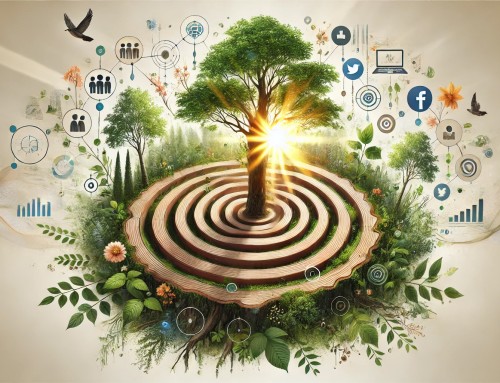As we step into 2025, AI-generated content continues to play a pivotal role in digital marketing.
With search engines like Google and Bing refining their guidelines, businesses must prioritize quality and user intent to maintain their competitive edge.
Here’s what you need to know to use AI-generated content effectively and ethically in 2025.
Google’s Perspective: Quality Over Quantity
Google remains committed to prioritizing high-quality content that meets user needs.
Whether AI-assisted or human-created, content must adhere to its E-E-A-T principles: Experience, Expertise, Authoritativeness, and Trustworthiness.
- Focus on Users, Not Algorithms: Google rewards content that delivers value to readers rather than gaming search algorithms. AI should complement—not compromise—this goal.
- Transparency Matters: Disclosing AI usage fosters trust with your audience and aligns with Google’s guidelines for content authenticity.
- Compliance is Critical: Follow Google’s updated Search Essentials, including guidelines on spam, technical optimization, and relevance.
Bing in 2025: Intent-Driven AI Strategies
Bing emphasizes the importance of understanding and addressing user intent, especially in AI-generated content:
- Context is King: AI content should directly respond to user queries and provide actionable insights.
- Use of IndexNow Protocol: This tool remains essential for notifying Bing about updated or new AI-generated content, ensuring timely indexing and visibility.
Best Practices for AI-Generated Content in 2025
To thrive in the ever-evolving SEO landscape, consider these best practices for AI-generated content:
1. Human Oversight for Accuracy
AI tools excel at generating content quickly, but human intervention ensures quality, brand alignment, and contextual relevance. Google supports the use of AI when paired with rigorous editorial review.
2. Say No to Spammy Tactics
Search engines penalize low-quality, keyword-stuffed content created solely to manipulate rankings. Aim for meaningful, user-centric material.
3. Keep Content Fresh and Updated
Regularly update AI-generated pages to maintain relevance. Tools like Bing’s IndexNow can help search engines promptly re-index these updates.
4. Prioritize E-E-A-T Standards
Ensure your content reflects Experience, Expertise, Authoritativeness, and Trustworthiness. This can include sourcing experts for quotes or collaborating with industry professionals.
5. Balance Efficiency with Creativity
While AI can automate repetitive tasks, human creativity remains irreplaceable. Combine AI-driven efficiency with compelling storytelling and unique perspectives.
SEO Techniques for AI Content in 2025
- Perform Strategic Keyword Research: Use advanced tools to identify user-focused keywords and naturally incorporate them.
- Craft Attention-Grabbing Headlines: Include primary keywords and ensure the headline addresses user intent.
- Use a Logical Structure: Break content into scannable sections using H1, H2, and H3 tags.
- Optimize Meta Elements: Write clear, concise, and keyword-rich meta titles and descriptions.
- Enhance Visual Appeal: Add images, videos, and infographics. Use optimized alt text to improve accessibility and SEO.
Mistakes to Avoid in 2025
- Keyword Overload: Excessive keyword use can harm readability and SEO. Use them sparingly and contextually.
- Neglecting Mobile Optimization: As mobile traffic grows, mobile-friendly content is critical for ranking success.
- Skipping Analytics Reviews: Regularly monitor your content performance and tweak strategies based on data insights.
The Future of AI-Generated Content
As we enter 2025, AI-generated content will continue to evolve.
Advances in natural language processing will make AI tools even more efficient, but the human touch will remain indispensable.
Combining technology with editorial oversight ensures content that is engaging, relevant, and impactful.
Did this article help you?
Let’s create content that works for you. Schedule a complimentary Discovery Call to enhance your digital marketing strategy.
Author: Joshua Lamothe (Assisted by ChatGPT4)
Year: 2024





